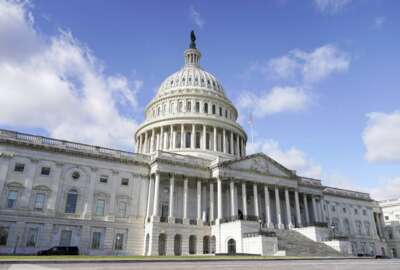They did it again. The CATO institute published a study showing federal employees make 78 percent more on average than those in the private sector, when you take benefits beyond salary into account.
These sorts of reports act as red meat waved before the stamping and snorting federal employee unions, public sector managers’ associations and Democratic members of Congress. They confirm the worst suspicious of other conservative think tanks, Republican members of Congress and various business associations.
The longer I’ve worked, the more difficult I’ve found it to compare pay and other pieces of compensation among companies and industries. I’ve worked as a member of two unions at different times in my life, and I’ve also held the title of executive vice president. For whatever reasons, when working as a union member, my relationship with employers has been only tangentially affected by the union. I’m good, and I’ve gotten pay and recognition beyond what a union contract alone could secure. On the other hand, I’ve been in situations where the union benefits in at least some categories were better than those received by non-union employees. The argument to that is, well the others don’t shell out for union dues.
My inclination is that’s a given employee in the knowledge fields — I don’t refer to myself or anyone else as “worker”, a coinage of Karl Marx — do better as individuals forging relationships with employers on each others’ terms. Sometimes an employee votes with his or her feet. One time I presented that possibility and ended up with a 50 percent raise and a company car. I’ve had years of big bonuses, and no-raise years when sales flattened.
What may be at the heart of the federal versus private debate are a couple of issues. federal employees do have benefits — sick days, vacation days, the TSP and above all the defined benefit pension as well as civil service job protections — that very few in the private sector have. Especially in the case of 401K matching programs and pensions, those may have originated in an effort to bring federal employees up to parity with the private sector.
But many of the benefits we in the private sector took for granted in the 1980s and 1990s have been pulled away. So relative to the federal sector, the private feels more like devil-take-the hindmost.
When it comes to pure salary, comparing averages doesn’t work. An accurate picture requires answers to questions such as:
- How does the pay band for a given job — lawyer, ambulance driver, geologist, airplane pilot — compare in the private and federal sector?
- To what degree does pay range in the private sector alone? A newbie pilot ferrying around a prop-job between Buffalo and Syracuse is likely to make a fraction of what the silver-haired veteran pilot makes hauling a jumbo from Kennedy to de Gaulle with champagne popping in first.
- What jobs might not even exist in one sector or the other? Both have doctors, accountants, chauffeurs and data center managers. Only one side has astronauts. Only one, hedge fund managers. How does this affect averages?
You may not agree with CATO’s findings or its implications. What public employees should be paid, the kinds of benefits they receive and the protections taxpayers give them reflect values and attitudes toward government.
If you think government is too big and pervasive, and many do, it seems to me the right way to right-size or down-size government is not to trim away a little bit from each program and each employee. That may cut the cost, but it can also cut the quality. Better to save by stopping to do things altogether while adequately funding the things you think should be part of government.
Copyright
© 2024 Federal News Network. All rights reserved. This website is not intended for users located within the European Economic Area.






